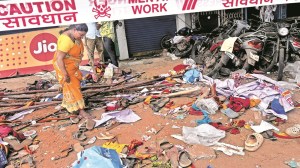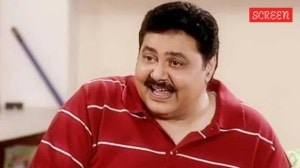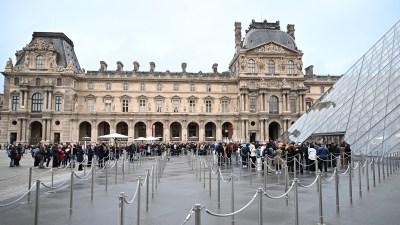‘No visualisation in Constitution of any authority above Parliament’: Vice President Dhankhar dials up criticism of judiciary
Vice President Dhankhar on Judiciary: Vice President Jagdeep Dhankhar had earlier said that India cannot have a situation where the judiciary directs the President.
 Jagdeep Dhankhar had on Friday last said India had not bargained for a democracy where judges will legislate, perform Executive functions and act as a "super Parliament". (PTI Photo)
Jagdeep Dhankhar had on Friday last said India had not bargained for a democracy where judges will legislate, perform Executive functions and act as a "super Parliament". (PTI Photo)Vice President Dhankhar on Parliament: A few days after warning against judicial overreach, Vice President Jagdeep Dhankhar Tuesday emphasised that Parliament is supreme, and elected representatives are the final arbiters of the Constitution.
Addressing a gathering at an event called Kartavyam at the University of Delhi to commemorate 75 years of the Constitution, Dhankhar said, “There is no visualisation in Constitution of any authority above Parliament… elected representatives… They are the ultimate masters as to what (the) Constitution content will be.”
Referring to Indira Gandhi’s imposition of the Emergency in 1975 and her defeat in the 1977 general elections, Dhankhar said, “A prime minister who imposed Emergency was held accountable in 1977.”
His remarks come amid a growing standoff between the judiciary and executive, particularly after the Supreme Court on April 8 directed the President to act within three months on Bills passed by the Tamil Nadu legislature and referred by the Governor. The court ruled that a Governor cannot withhold assent indefinitely — or exercise a “pocket veto”.
In response, Dhankhar had criticised the verdict, saying India “cannot have a situation where the judiciary directs the President.” Speaking last week, he warned against a scenario where “we have judges who will legislate, who will perform executive functions, who will act as super Parliament and absolutely have no accountability because the law of the land does not apply to them”.
On Monday, the Supreme Court acknowledged the ongoing tension. While hearing a petition seeking President’s rule in West Bengal, Justice B R Gavai remarked, “You want us to issue a writ of mandamus to the President to impose this? As it is, we are facing allegations of encroaching into the executive domain.”
At the DU event, Dhankhar expanded on the role of citizens and elected representatives in shaping democracy. “For any democracy, every citizen has a pivotal role,” he said.
“I find it inconceivably intriguing that some have recently reflected that constitutional offices can be ceremonial or ornamental. Nothing can be far distanced from a wrong understanding of the role of everyone in this country, constitutional functionary or a citizen. According to me, a citizen is supreme because a nation and democracy are built by citizens.”
He continued, “Part of ‘We the People’ is an atom in democracy and that atom has atomic power… That atomic power is reflected during elections and that is why we are a democratic nation.”
“The Constitution is encapsulated—its essence, it’s worth, its nectar—in the Preamble of the Constitution. And what does it say? ‘We, the People of India’, the supreme power is with them. No one is above the people of India,” Dhankhar said.
“The Constitution is for the people, and its repository of safeguarding is that of the elected representatives.”
‘Democracy shaped not by governments but individuals’
He also spoke about the participatory nature of Indian democracy. “Democracy is not only for the government to govern. It is participatory democracy, just not laws, but also culture and ethos. Citizenship demands action, not merely status… Democracy is shaped not by governments, democracy is shaped by individuals.”
He added, “Government has a role that it must have affirmative policies but government is like giving me a good stadium, a good football ground. Goals have to be scored by individuals.”
On the nature of public discourse, Dhankhar asked, “Is our discourse moderated? Is our discourse manipulated? Is our discourse controlled by moneybags, by muscle power, by foreign interests, by people working against the interests of this nation? You will have to discern.”
He underscored that democracy must rest on open dialogue and expression. “Abhivyakti aur samvaad—these are the core mantras of democracy… If your right of expression is throttled or regulated, as was done during the Emergency, democracy nosedives. But… if you believe your expression is ultimate, where you refuse to entertain any different point of view… that, too, is not true expression as per our civilisation.”
Citing Vedic traditions, Dhankhar said, “This was referred to in Vedic times as ‘Anantavad’—the idea of infinite perspectives… Vaad-vivaad dissolves ego and arrogance.”
“If you hesitate to speak the right thing, at the right time, to the right group and the right person, you will not only weaken yourself but also deeply hurt those positive forces,” he added.
Encouraging students to rise above partisanship, he said, “Our youth must elevate beyond partisanship to thoughtful deliberation… You cannot be tied down to partisan interests; you have to believe only in national interests.”







